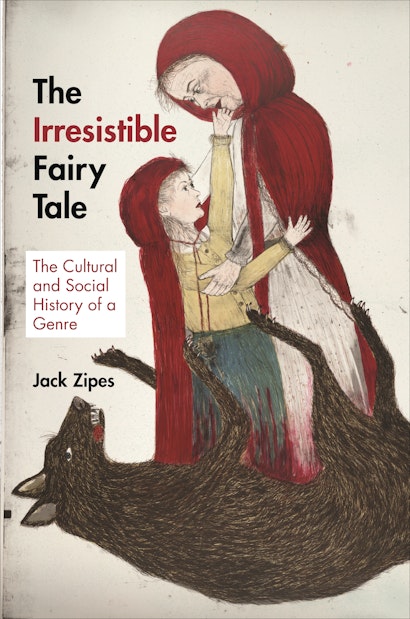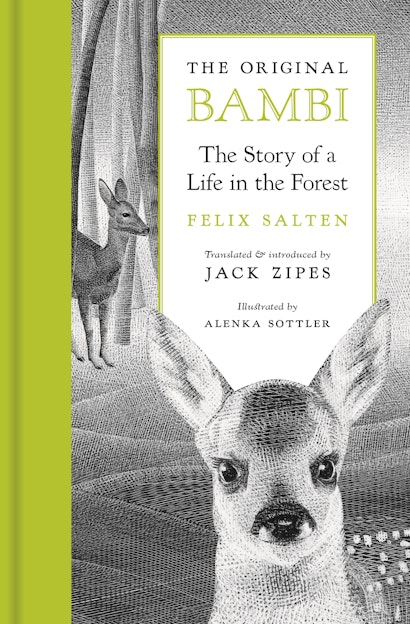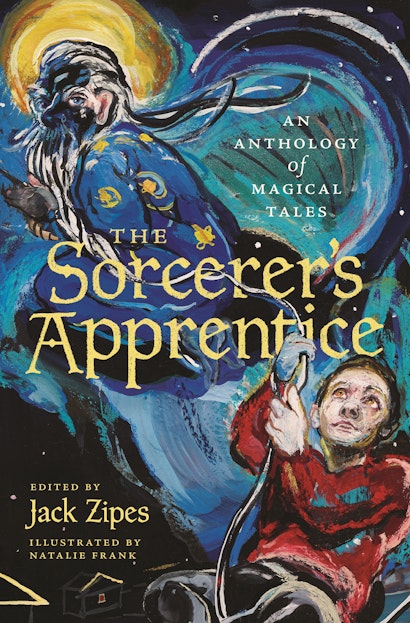Old uncanny fairy-tale books are lonesome and maltreated. They are ignored because they are considered quaint. Nice to look at. Briefly. With children, of course, and with a touch of nostalgia. Yet, deep down, we sense there is something more to the tales than our longing for the past: old uncanny fairy-tale books should not sit on bookshelves and be allowed to become musty. Nor should collectors and libraries hide them. The dazzling and unfathomable wonder tales want to breathe hope through words and images that wishes and daydreams can be realized. We can allow them to do this if we learn to think out of the box. Then we arrive. We arrive in alternative worlds where social justice dominates, not dictators. It is in the forests of alternative worlds that we are free to determine our own destinies.
Fairy tales are not medicine for the sick world in which we live, they are indications and traces of what we were and can become. They are literally alternative worlds in which ethics and morals in our so-called real worlds are tested. To those shameful people who think fairy tales are nothing but foolish and trivial stories for kids, there is no hope, for it is through our imaginations and imaginative worlds that we create sound strategies not only for survival but also for the endowment of enlightenment. The small people must learn to be smart and outsmart the villains of this earth.
Not all fairy tales can shine. Not all fairy tales can enlighten us. In fact, there is no such thing as a standard fairy tale or pure literary or oral genre, even though academics might want to believe that they can define anything through their theories, categories, and definitions. All tales emanated thousands of years ago in oral traditions, and they were wondrous curios that sought to explain existence, why we were there, and where we were going. Some of the tales were marked by all sorts of rituals. Some tellers of tales endeavored to gain power through organized religious tales while others questioned the arbitrary canons of tales. They did not want the magic of existence to be packaged in so-called appropriate belief systems.
I am still amazed by the exhilarating secular existential fairy tales told and written that compel us to think about the mysteries of life and to question the dominant civilizing process that exploits our talents instead of sharing them. I do not want to exaggerate the importance of fairy tales, nor do I think they are all relevant or informative. What I do believe is that numerous writers, illustrators, translators, and collectors of fairy tales from the past two centuries have not been given their due. This is why I have spent my retirement years since 2008 publishing fascinating collections of tales by authors and artists who purposely used their remarkable talents to confront the forces that have exploited the work and fruits of people who have been stamped upon and overlooked—the small people in fairy tales that are not fairy tales because the fairies gave up on humans years ago.
It is often fascinating for me to draw connections between all the authors and their fairy-tale books, especially those from the twentieth century, that I have discovered in libraries, flea markets, used bookstores, and also in Internet searches. The results of my curiosity and passion for fairy-tale books have led me to write introductions or afterwords to those that I have published. Since my essays are all somehow “serendipically” connected, I have decided in my old age to bring most of them together to demonstrate the unique and different qualities of the tales. Most of the essays in this book, which I have carefully revised, were first published in collaboration with Princeton University Press, and I hope to maintain this collaboration to the end of my days.
Jack Zipes is the author of The Irresistible Fairy Tale, translator of The Original Bambi and The Original Folk and Fairy Tales of the Brothers Grimm, and editor of The Sorcerer’s Apprentice (all Princeton). He is professor emeritus of German and comparative literature at the University of Minnesota.





